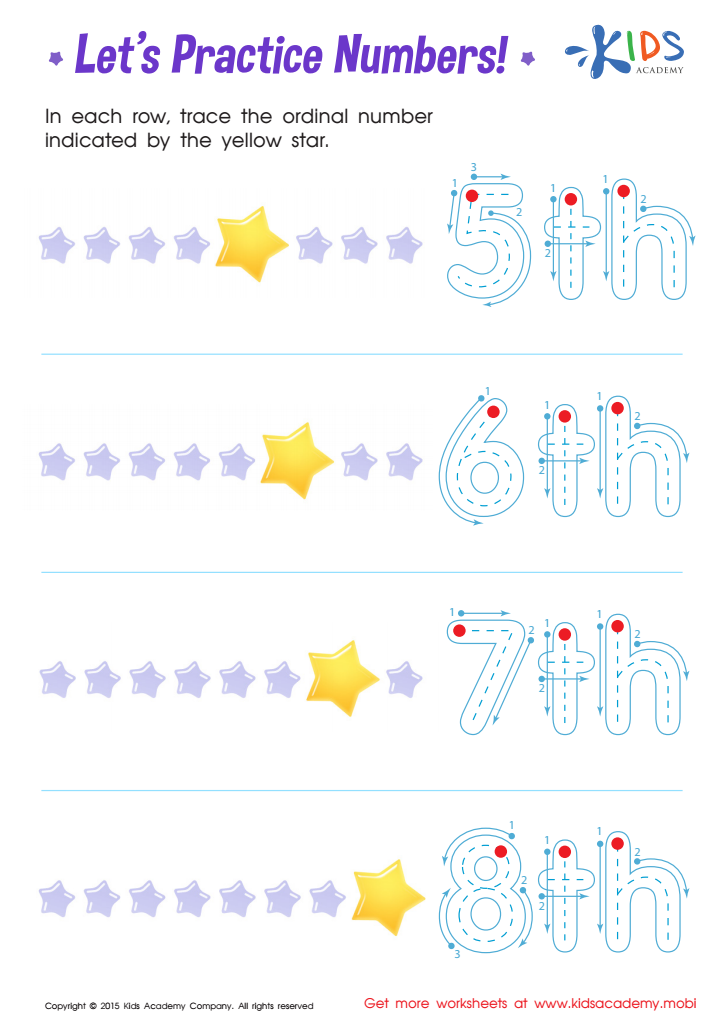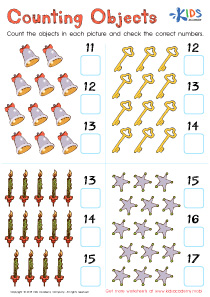Number Recognition Normal Tracing Numbers Worksheets for Ages 6-7
16 filtered results
-
From - To
Enhance your child's number recognition skills with our engaging Normal Tracing Numbers Worksheets, designed specifically for ages 6-7. These meticulously crafted worksheets provide a fun and interactive approach to learning, enabling young learners to trace numbers and reinforce their numerical understanding. By practicing number tracing, children will develop fine motor skills and improve their handwriting accuracy while gaining confidence in recognizing and writing numbers. Ideal for both homeschooling and classroom settings, our worksheets make math enjoyable and effective. Download these printable resources today to support your child's growth in number recognition and set a strong foundation for future math success!
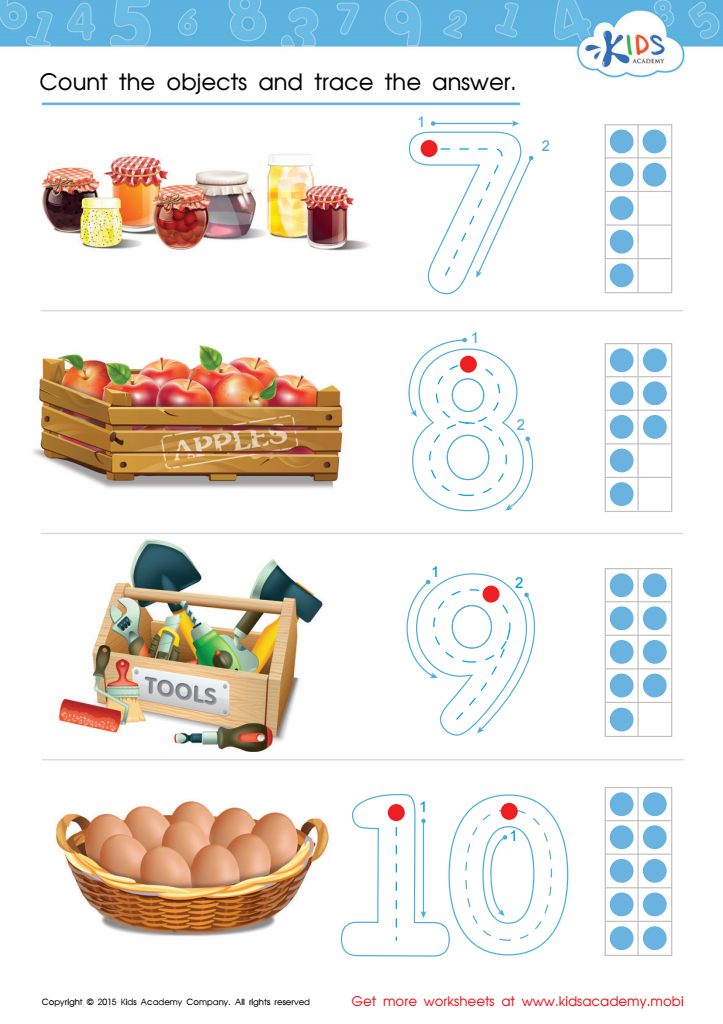

Count and Trace 7 – 10 Worksheet
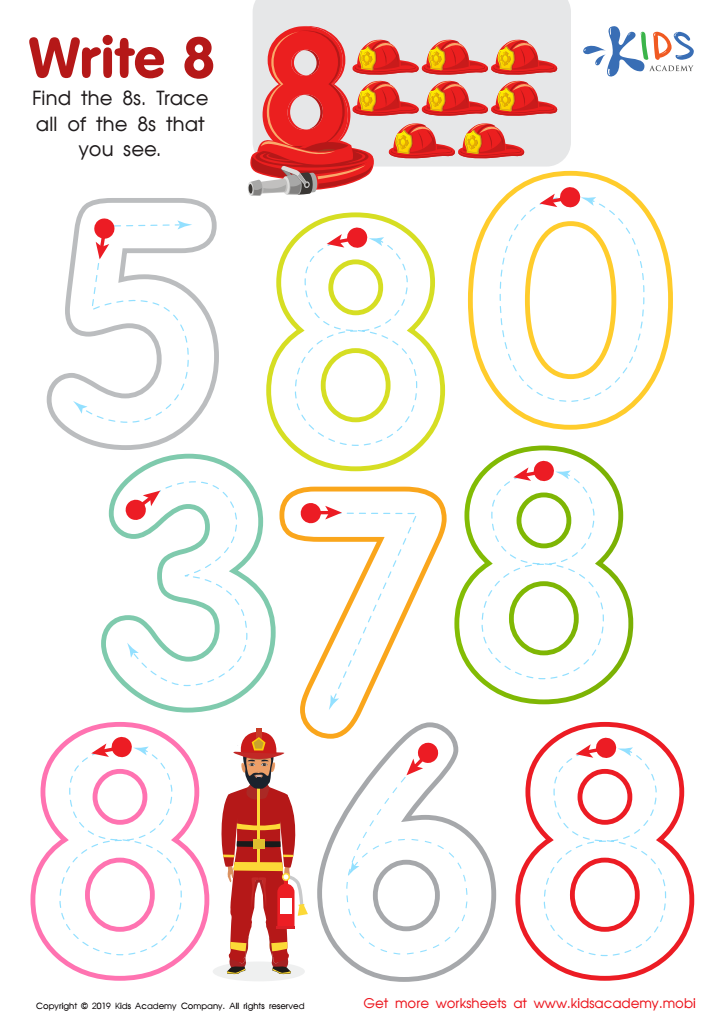

Write 8 Worksheet
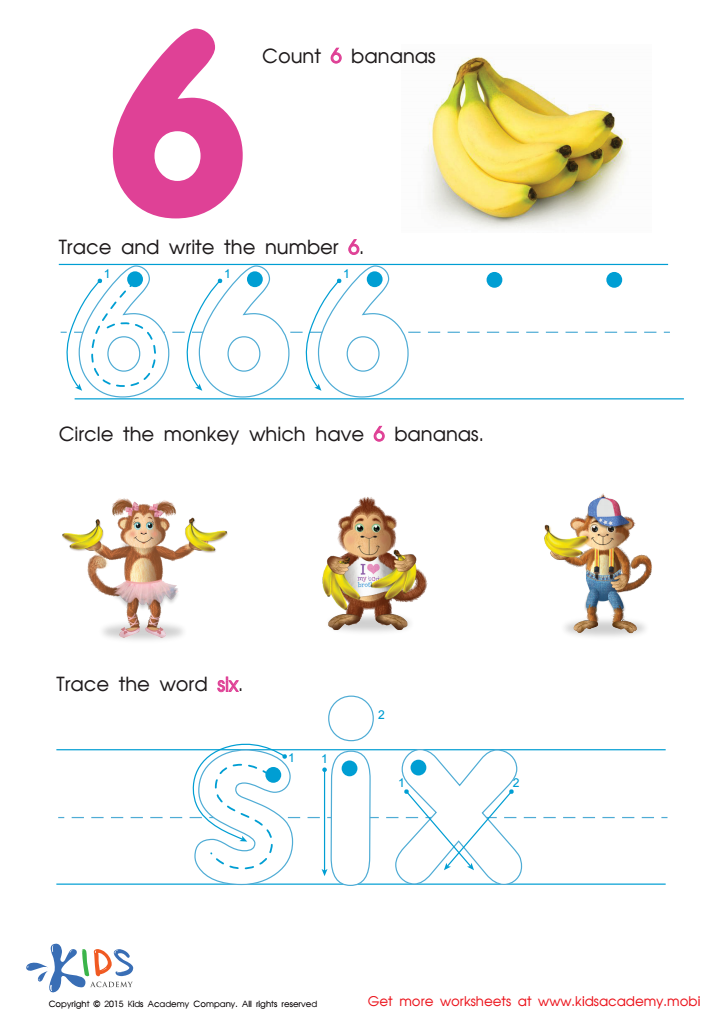

Tracing And Writing Number 6 Worksheet
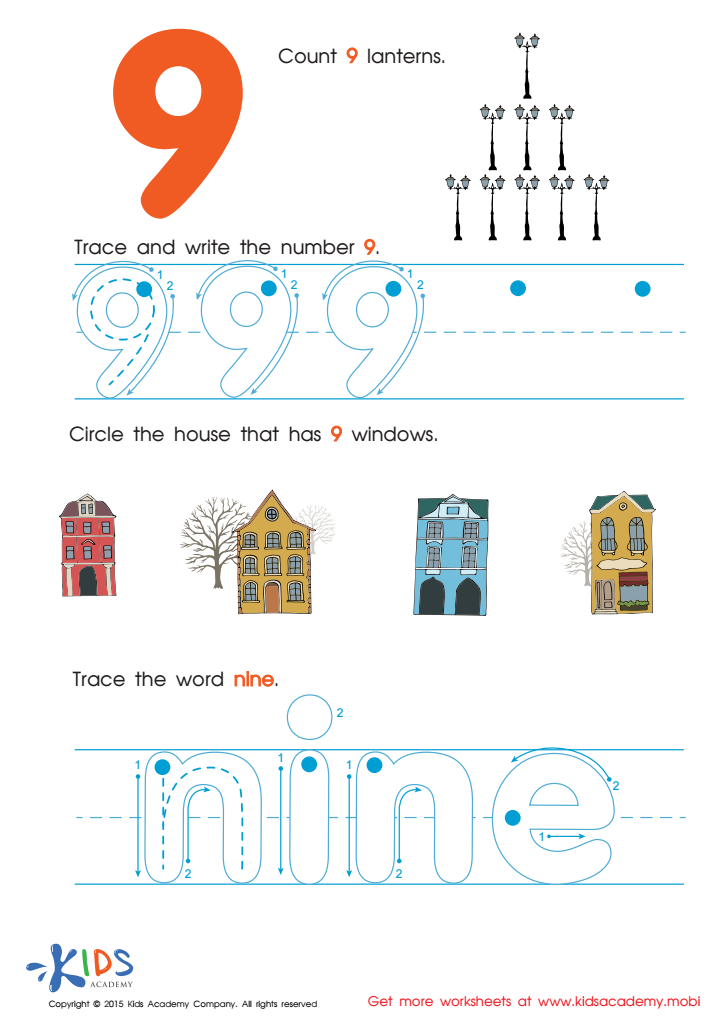

Tracing And Learning to Write Number 9 Worksheet
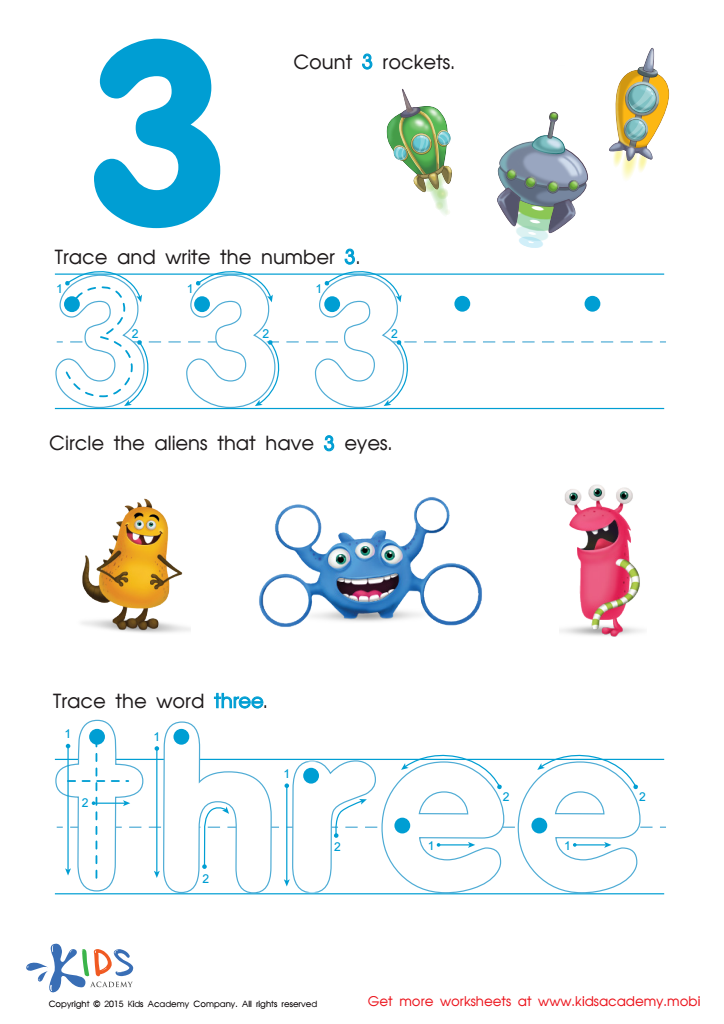

Learning Number Three Worksheet
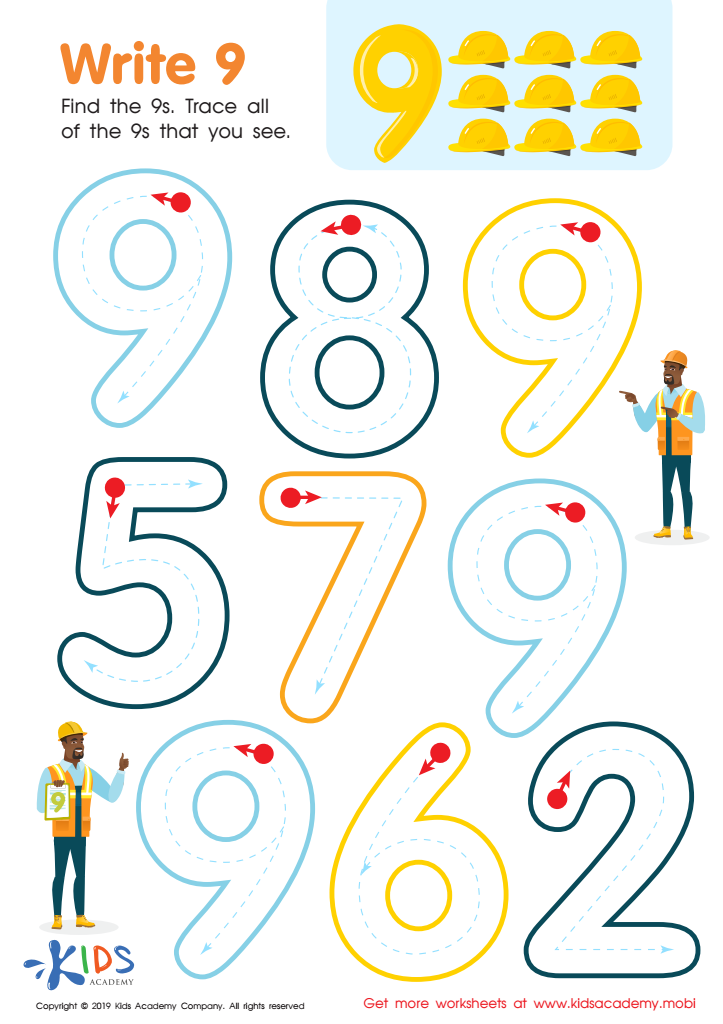

Write 9 Worksheet
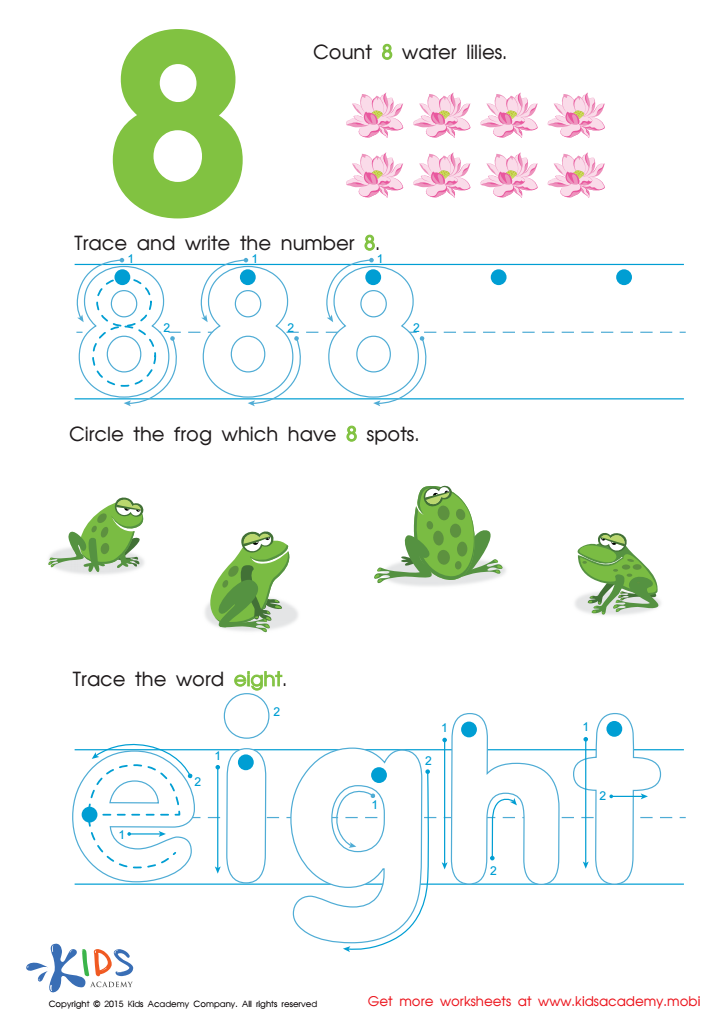

Learn Number 8 Easily Worksheet
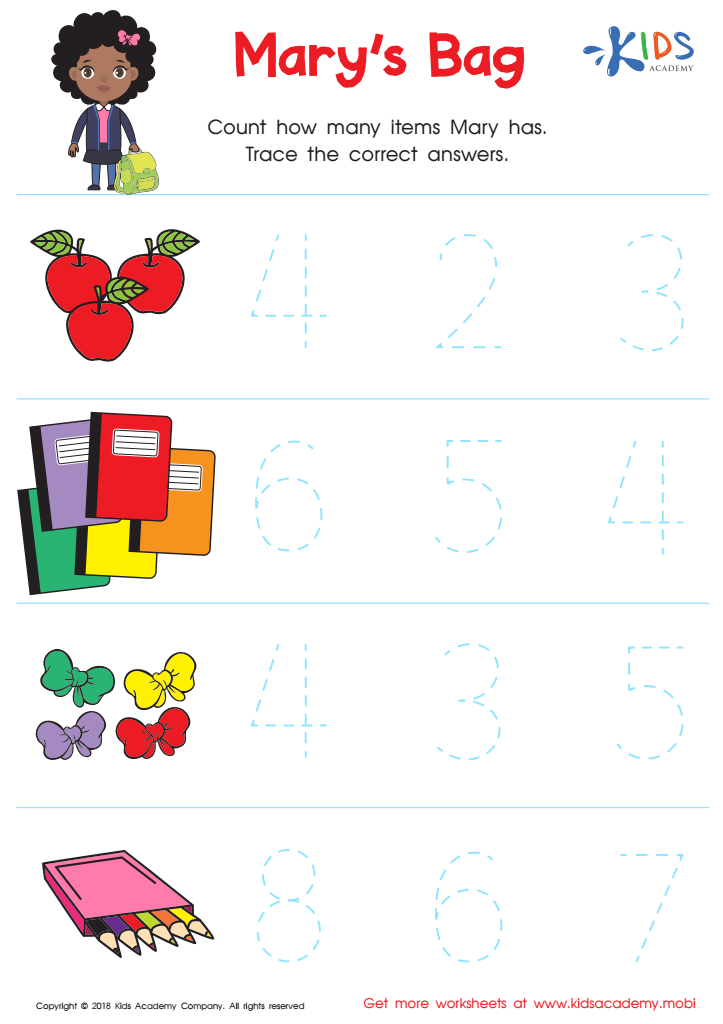

Kindergarten Number Tracing: Mary's Bag Worksheet
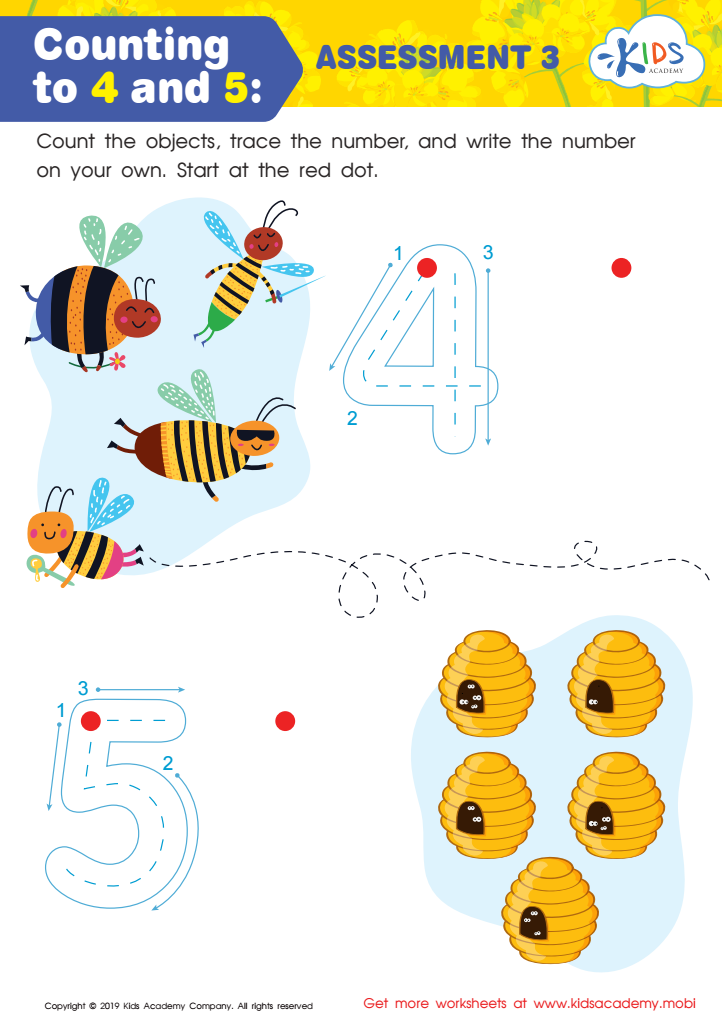

Counting to 4 and 5: Assessment 3 Worksheet
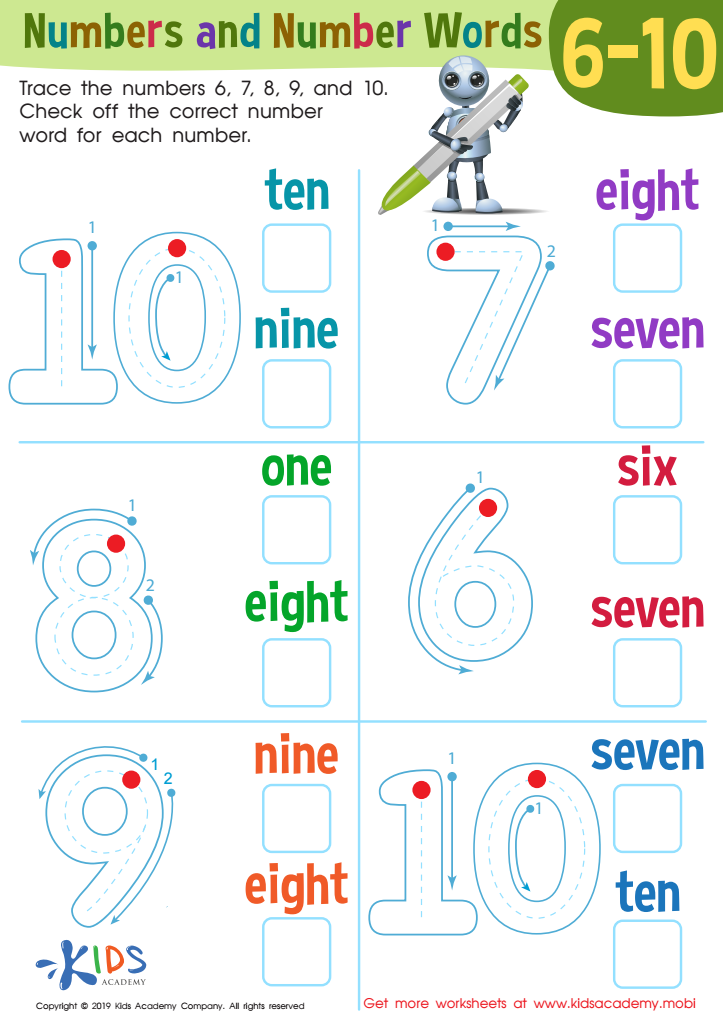

Numbers and Number Words 6–1 Worksheet
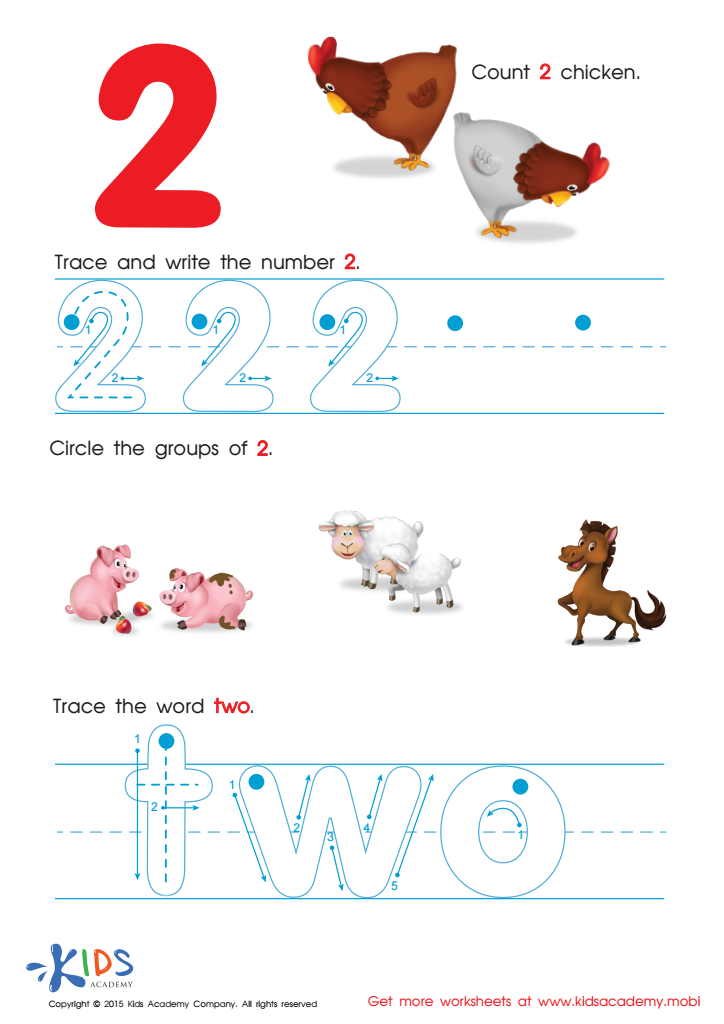

Learn to Write the Number 2 Worksheet
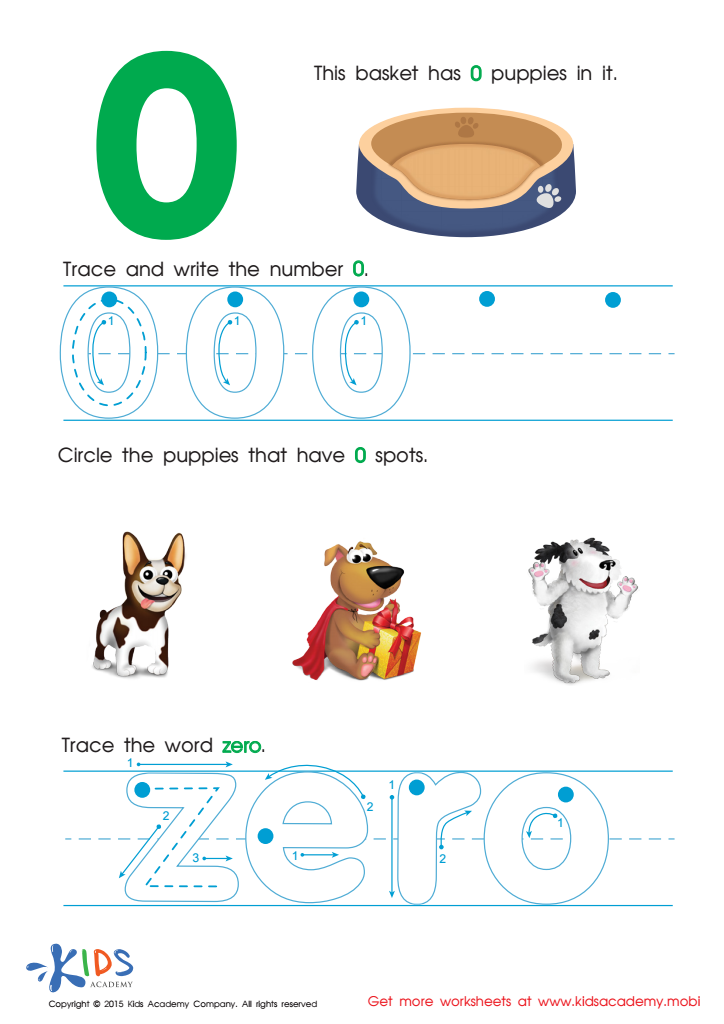

Trace And Write Number 0 Worksheet
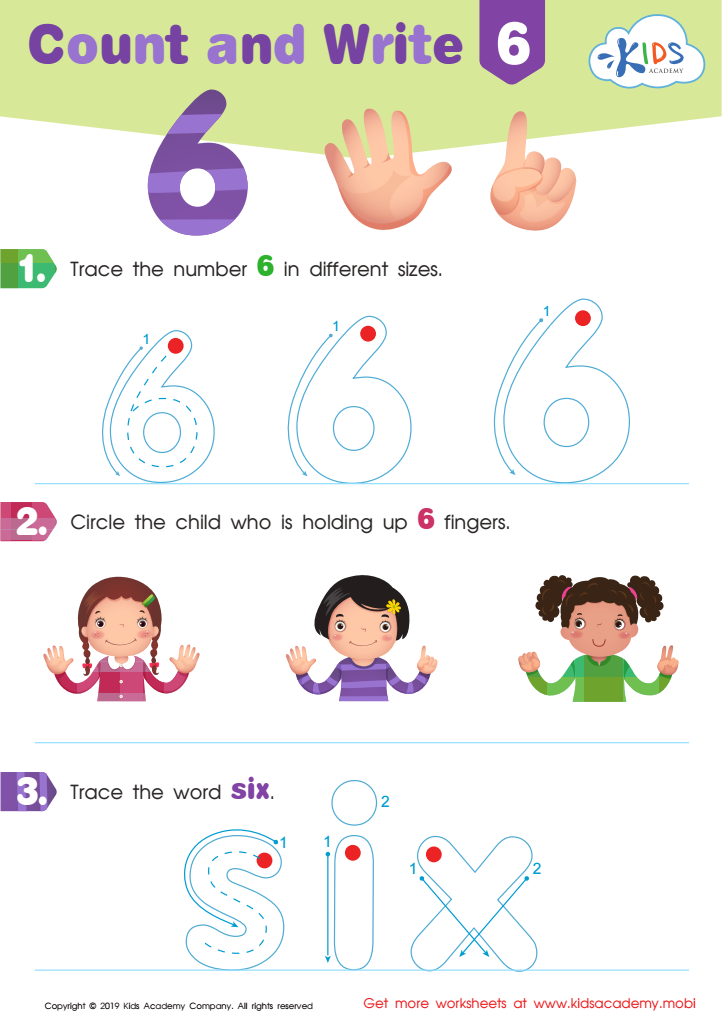

Count and Write 6 Worksheet
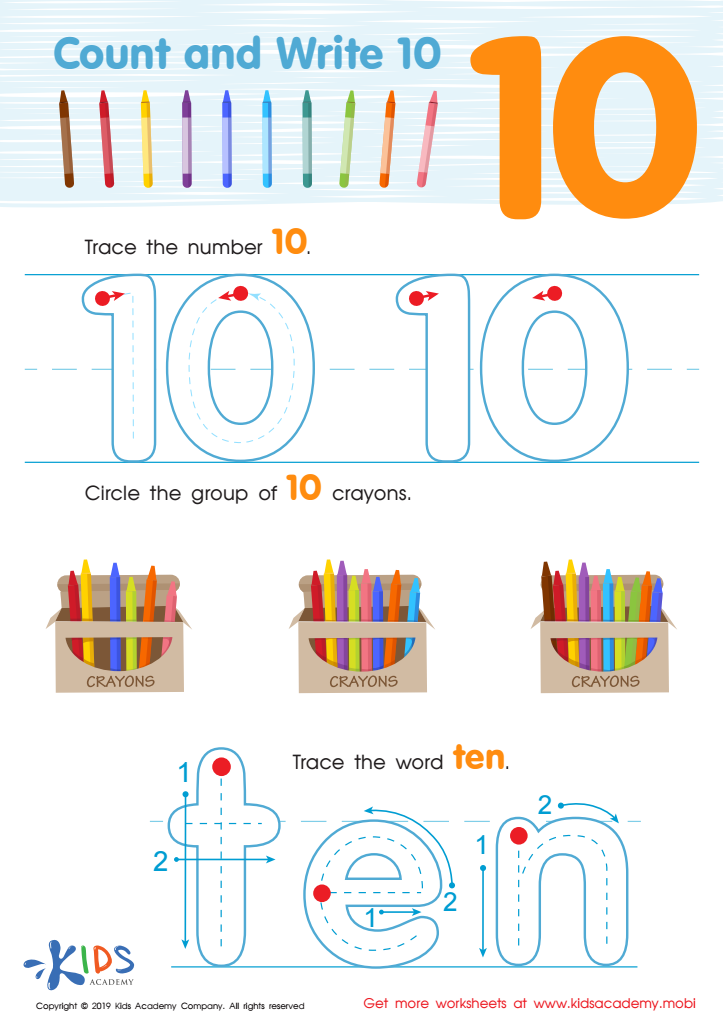

Count and Write 10 Worksheet
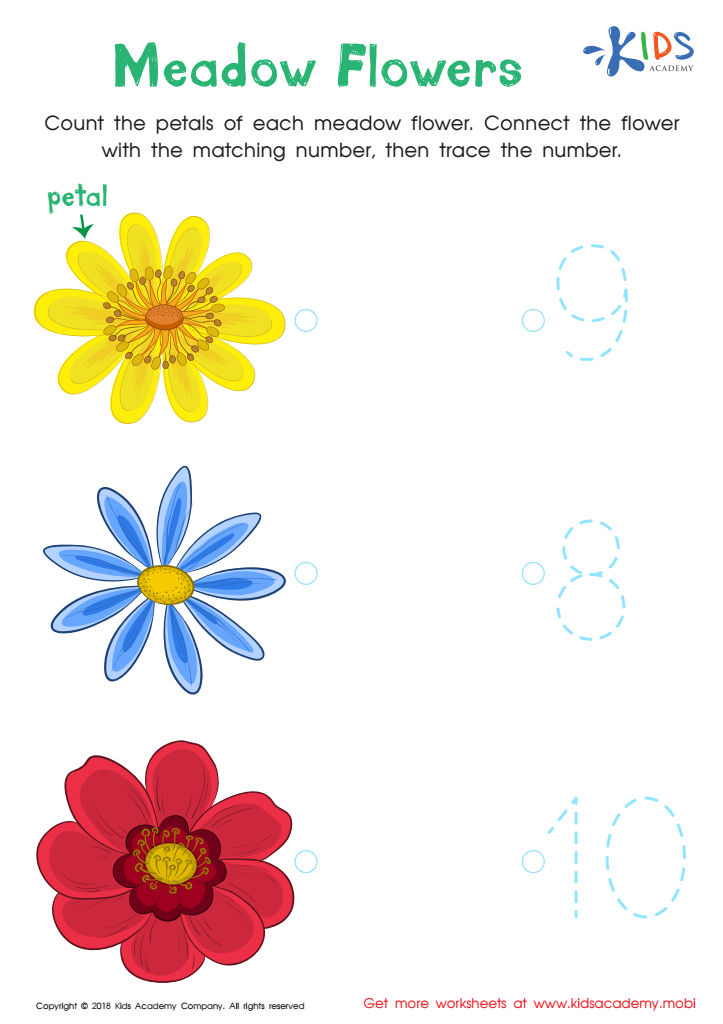

Kindergarten Number Tracing: Medow Flowers Worksheet
Number recognition and proper tracing of numbers are fundamental skills for children aged 6-7, forming the basis for more advanced mathematical concepts. At this developmental stage, children begin to solidify their understanding of numbers, which is essential for problem-solving and critical thinking. Mastery of number recognition enables students to confidently engage with math-related tasks both in the classroom and at home.
Parents and teachers should prioritize these skills because they contribute to overall academic success. Recognizing numbers quickly aids in various subjects, including science and economics, where mathematics plays a crucial role. Additionally, tracing numbers helps develop fine motor skills and hand-eye coordination, which can benefit writing and overall handwriting quality later on.
Furthermore, promoting number recognition and tracing fosters a positive attitude towards math. Early mathematical confidence can reduce anxiety in students and create lifelong learners. Engaging in fun activities to nurture these skills helps build collaboration between parents and teachers, ensuring a nurturing supportive environment for a child's learning journey. By caring about number recognition and tracing, adults invest in a child’s future success both academically and in everyday life, laying crucial groundwork for a well-rounded educational experience.
 Assign to My Students
Assign to My Students
